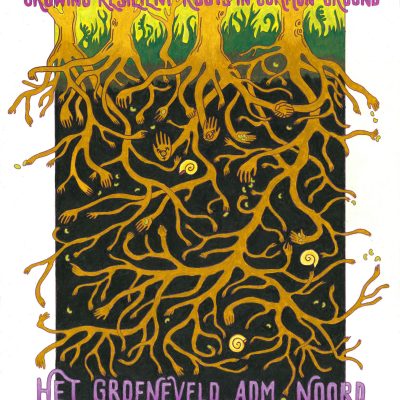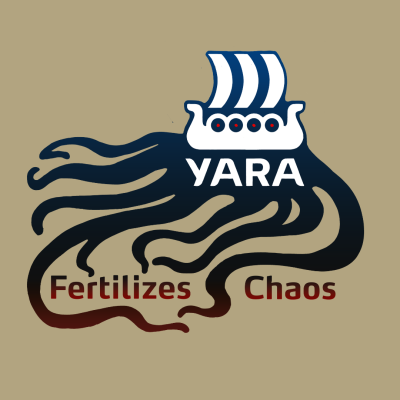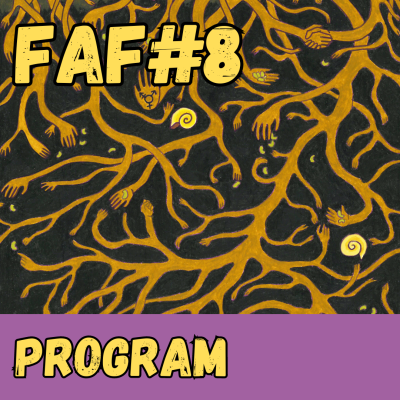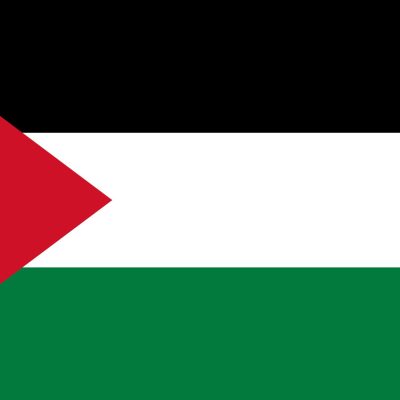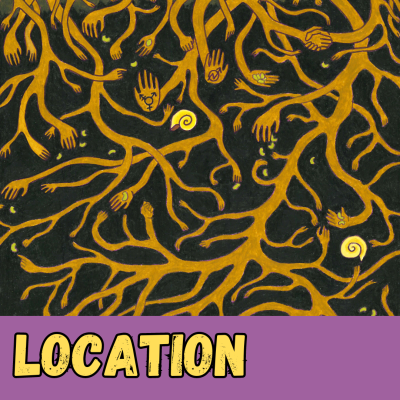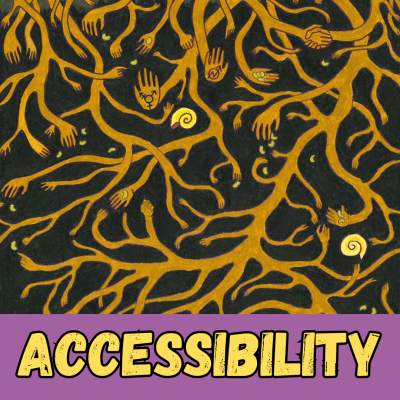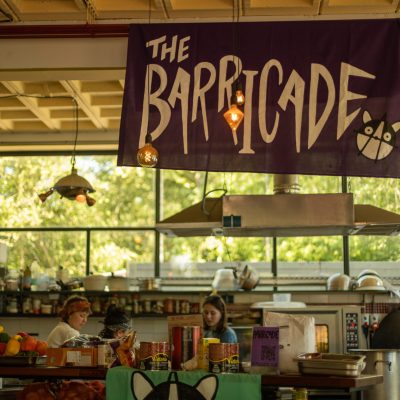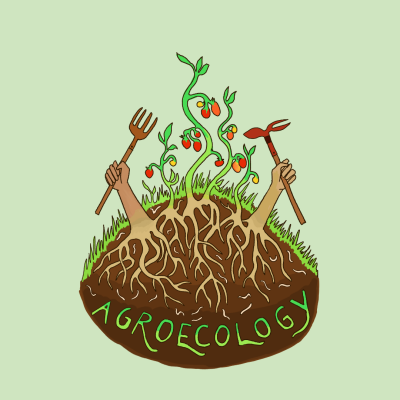Following Eckardt’s interview in November 2022, I collected thoughts from different activists in Lutzerath about the situation farmlands are facing in the area of Garzweiler. I wanted to share their experiences and ideas here. Enjoy your reading!
Encounter with Marina Scheidler from Alle Dorfer Bleiben, at the Manwache Lützerath.
I live in Wanlo, 400m from the pit. The air is polluted and the mine is always loud, even at night. They stop running the digger only 3 days in the year, for Christmas.
There is an internal local conflict. Local people pro-RWE believe that the situation brings money to the region and that it is good for the economy. RWE provides funds for students, and an access to sports clubs and kindergarten. On the other side there are local people against RWE who want to keep nature as it is, and mostly, who want to keep their homes.
When I look into the mine I’m thinking about what we do with it afterward. The government wants to make it a lake, a holiday area, but we don’t have enough water for that! so it might not work… And if it does, I don’t wanna see this place transformed into a tourist area with a beach! It is the best soil in Germany, with almost 100/100 score to grow vegetables, everything can grow here!
Talk with YURIK, farmer at Joachim’s farm, Der Lenssenhof, the organic local farm that donates vegetables to lützerath’s Küfa (communituy kitchen).
Working on a farm is fun, and grounded, what you see is changing every day and according to the seasons.
To learn agriculture you can study but you can also just practice. Agriculture schools are for people that can afford it. Going to university is the easy way, the system agrees with what you’re doing, you write your thesis, but in the end, you don’t have any practical knowledge. What makes a real difference is to develop real solutions for food sovereignty.
I work on the farm with Joachim. He runs it for 30 years, he is from the 4th generation of farmers. His father was a conventional farmer doing potatoes, sugar roots, and animal husbandry. They eventually decided to change their farming methods to farm ecologically. His father told him: “Here you have my worse piece of land. See what comes!”. Joachim started farming from scratch and it was really hard but now he is respected as a good farmer. The conventional farmers are still not his friends but he builds up a farm that is a good example of how agriculture could work. He sells the vegetables in a little store at the farm, it’s a nice and welcoming place. He also sells in two markets, one of which is in Monchengladbach. And he also sells to bigger markets where the products go to restaurants etc.
Joachim uses part of the so-called permaculture, he has a five years circulation on the field and takes into account what was growing on the soil before replanting a new crop. He keeps track of everything: if there was grain, afterward he’ll plant potatoes. He always knows what to plant next. He does scientific research on the soil every few years and changes or adds what needs to be improved. There is no deep ground machine work, when the soil needs to be plowed it’s only a few centimeters deep. Joachim got an agreement with the farm nearby: he grows the food for this farm’s animals and he gets back the manure that he can spread on the fields. He doesn’t use any synthetic fertilizers.
What’s happening with Garzweiler mine is literally the worst thing humans can do to themselves! Humans destroy the soil and in the next decade, we will fight our back for every piece of fertile ground!
The composition of the soil is so special here because there are no stones, the work is easy and it keeps the minerals really well. The structure of the soil at Joachim‘s farm is way better than at the Lutzi Kolawi (community farm): the soil is so soft you can walk barefoot as if it was a smooth meadow! As we’re farming without chemicals, we have to take out the weeds but it is really easy as the floor is so soft.
Joachim’s farm is medium scale, composed of 4 people.We have land for grain, potatoes and many types of vegetables, the farm is maybe 20 hectares. When we plant cabbage like kale, you can harvest it and plant it 3 or 4 times, it is fast growing. Joachim’s land is not directly threatened by the mine but the problem is the groundwater: the level can sink.With their pump system, RWE pumps up the water and makes the groundwater higher than it should be in reality in the villages around. If they stop pumping the groundwater will run down in the mine so they can never stop pumping and people have to pay for it forever. It is an eternity cost! Now the green party tries to arrange that RWE pays for it but they might do a deal that in the long term the government will pay for it. This would be catastrophic because public money will then go there! Public money will be repairing what they profit from. Others will have to pay for loss and damages they didn’t cause…
On the wall of Heckardt’s hof is a metal board with the inscription : « The German bundestag also supports the preservation of Lutzerath at the garzweiler opencast mine and the renunciationof the use of the lignite below the village. 07/07/2022 »
The Bundestag doesn’t want Lützerath to disappear, but the law situation is clear that RWE is allowed to destroy the village, they clean themselves for the public opinion, first, they stayed passive, didn’t make any political decisions, and know they made the decisions in the Bundestag for the destruction of Lutzerath… With the energy crisis, the green party is afraid to lose their base, their voters…
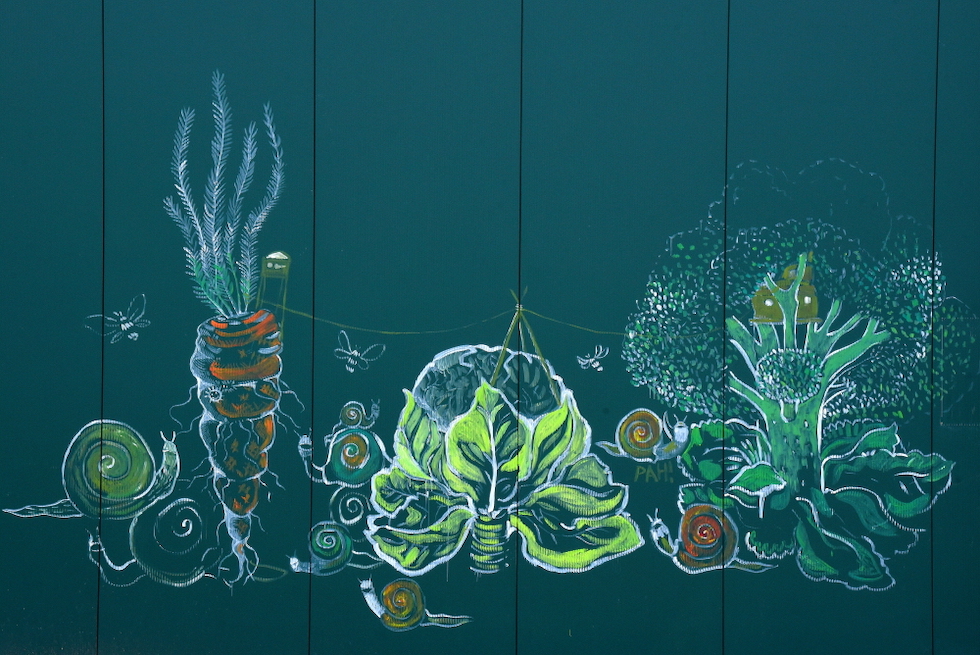
WE ARE EATING UP THE COAL, a conversation with Saskia, Lützerath activist and nutritionist from Fooderstand, an association for food education.
The coal mine and energy sector, is taking away our future food to get energy. This area has the perfect ground to grow food, it is one of the best areas in the whole country, and even in Europe, and we take it away!
We don’t discuss enough how much energy our food system is eating up! People think that going vegan is enough to have a low carbon impact on the environment, but it’s not!
I have a good illustration: 60 years ago, using one portion of energy/ in calories allowed to gain 6 calories. We were eating local potatoes. But nowadays we are eating frozen fries, that are coming from another part of the world, that have to be cut, put on a big freezer ship going through the ocean and we even need two ships because in our fries package, we have 50% of air ! So we are transporting one big ship of air around the world ! Then we have to keep the fries again in our freezer sometimes up to half a year, one year, to then heat them up to 200 °C.
Today in the industrial food system, whenever we do eat 1 calori we have to put in 1,5 calories. We are eating coal, gas, and oil by processing our food. Climate apocalypse coming up we don’t have the time and energy to go till the lentil protein sausage… we should just go directly to the lentil! When supermarkets have a climate-neutral label it’s a lie they are just trying to compensate. Climate-neutral food is a myth, there is always an effect on climate. Food influences the planet.
I became a nutritionist because I wanted to have healthy kids. When I am in the city, I see food everywhere, but non-vegan, processed industrial food that creates diseases. I am dying inside when I see a kid eating this. When a kid is eating Macdonald food everything is wrong: it is spoiling a huge amount of energy, it is not respecting animal rights, and after that, the kid is getting sick because of this highly unhealthy food…
We are eating up the coal, and in exchange, we are going to die. 11 million people die every year because of our bad western eating behaviors and bad food system. On one hand, There is malnutrition and hunger and on the other hand, people are eating themselves to death, getting overweight, and obese because of chemicals in the food.
Food is the energy for the body. Energy for my body is more important than energy heating up my room : I can eat raw carrots but if I have boiled water without carrots I cannot feed myself. The real crisis behind the energy crisis is the food crisis. We are destroying everything by the way we are eating.
Here in Lützi we discuss finding a good food balance. We make our own chocolate cream out of cacao powder and beans instead of palm oil and sugar. It’s a relief that I can be in Lützerath without having to deal with food in a negative way. For me what works the best in Lützerath is the Küfa! There is sometimes processed food, but it would have ended up in the trash so it is not eating up energy when people in the camp do eat it because the energy is already gone. People at the Küfa are eating a lot of lentils and beans. Kolawi farm produces a lot of good organic vegetables so there is a good beginning of autonomy there.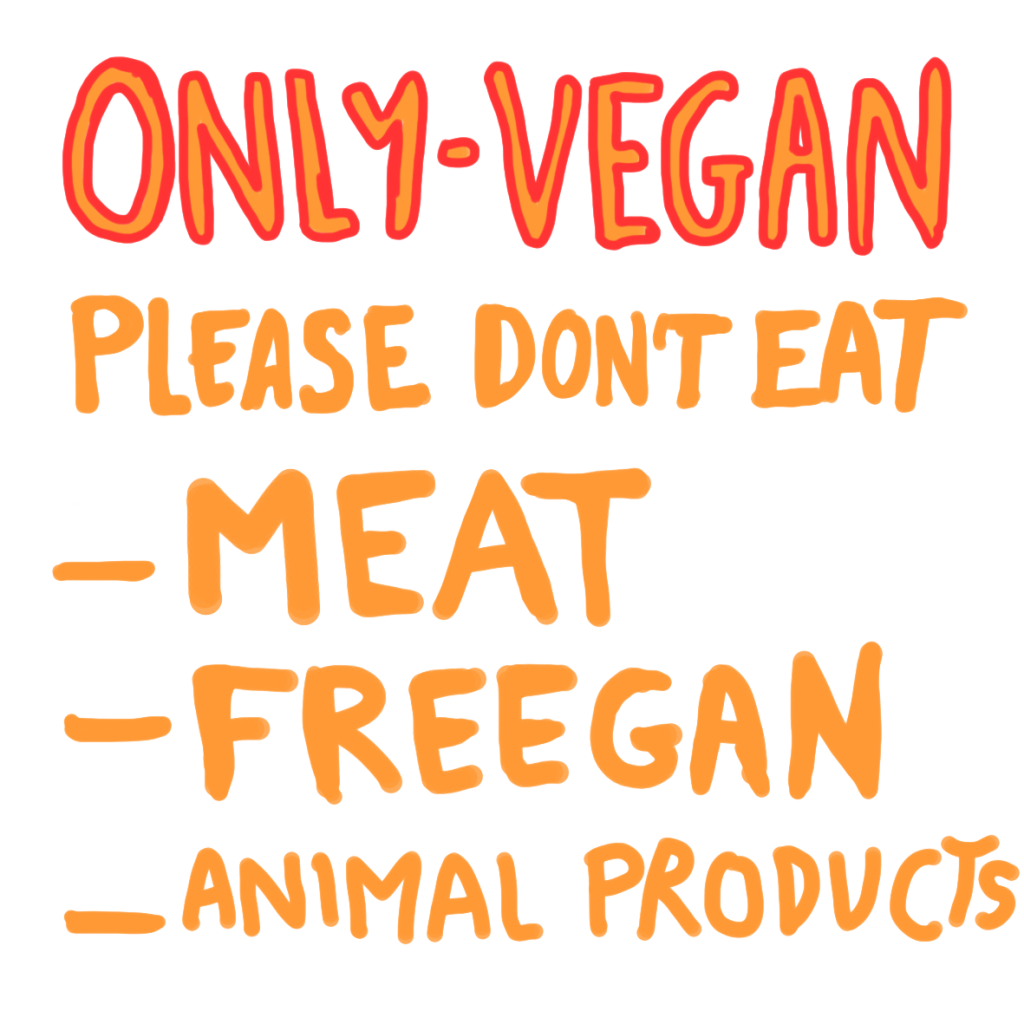
My main demands are :
– having fixed prices for unprocessed seasonal regional food. It would save energy, the environment and people would become healthier. There would be fewer risk patients for corona (often linked to obesity).
– food and ecological education: people need to know why they should make these choices.
– having more therapist, western society is broken and depressed that’s why we are consuming so many things. Instead of having conversation, we are buying each other things. Lobbying and marketing make us believe we can’t survive without this, capitalism and money are driving people. People want to buy stuff to feel safe, to get rid of their fear. Behind the whole mentality of extractivism is fear, we need to feel safe. We are consuming the fears of others.
People are shocked when they come to Lützerath. They can’t grasp the immensity of the mine. It is so unnatural. Especially at night time, it’s dark, you see nothing but the machines that are lighted up, and hear nothing but the rough metallic noises of the machines. The mining landscape is devastated, broken, and sad… When I see kids standing in front of the mine it breaks my heart.
Watching into a supermarket is worse than looking at the mine, because there I see how we waste all this coal.
A conversation with Schildkrote, and Sonne about Kolawi (Kollective Landwirtschaft), Lützi solidarity field, a resourceful DIY farming where activists are learning by doing.
Schildkrote: Inside of the earth is our past, the beings that have been here, the plants and animals… They are our ancestors.
It touches me when I look into this hole, I feel connected to this material of the past but at the same time, I can’t understand the integrality of this destruction because I am only human and I am feeling so weak. But I am still here and I plant some things, and when I am in the fields of Kolawi I get the intensity of life.
As his land patches were getting smaller and smaller, Eckardt couldn’t use his fields anymore so he left them to the activists. He gave us 1 hectare but a lot of the field we don’t use anymore. He prepared the land for us. With his machines, he plowed the immense surface of brown rich earth. As it was soil used in his monoculture it was compressed and needed to be loosened. This soil is the most fertile in Germany, it got Almost 100 points on a 100, on the scale of soil fertility! This good soil is also going deep by several meters whereas in other areas of the world, it’s only a few centimeters.
There is a vegetable garden right at the place where the old Küfa was. When they were cutting vegetables the seeds were falling into the ground, and pumpkins, paprikas, and tomatoes, grew fast without human intention. This is a perfect image of how the soil is so fertile!
Sonne: We should take it with us when they start the eviction! It is crazy that it is still so fertile after monocultures used it so much.
Schildkrote: But I am also sad when people say “oh there are so many worms”, no people there are not many of them! You should have hundreds of it in a handfull of soil when the soil is healthy. Here it’s too compressed!
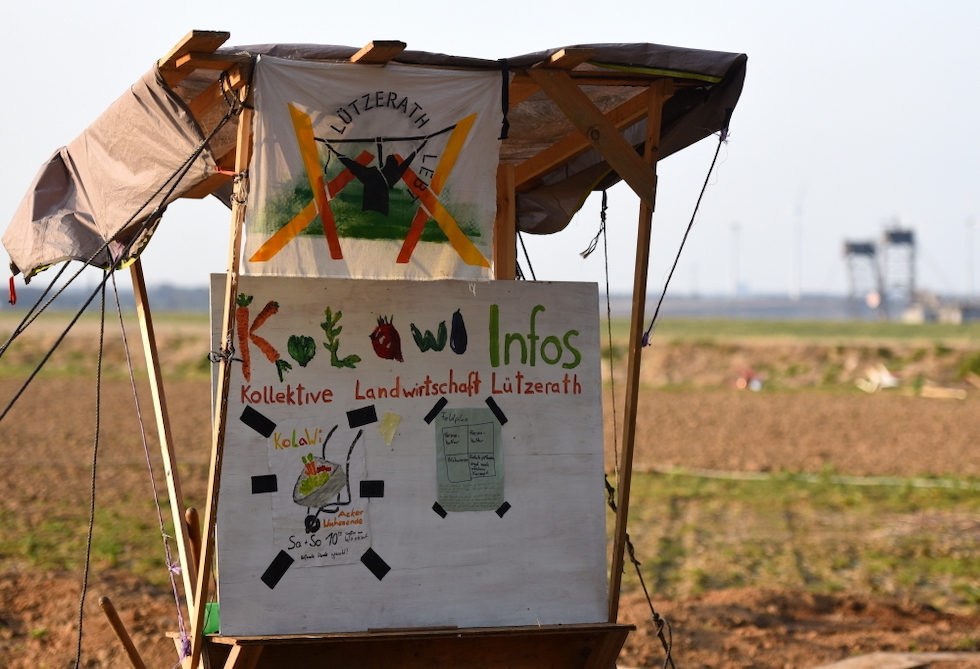
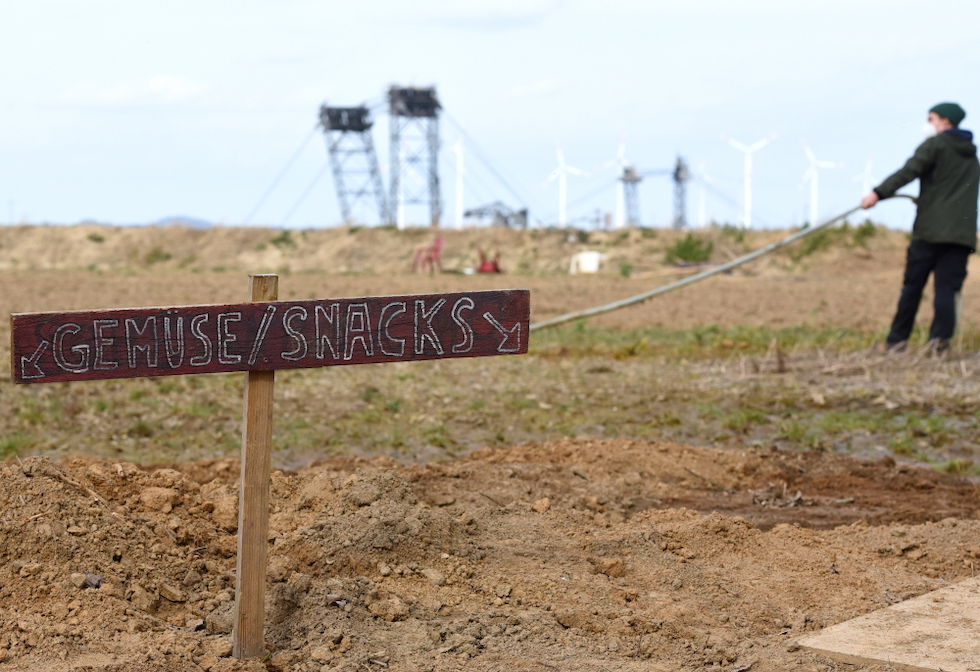
We first decided to divide the field in form of an X, the symbol of resistance with yellow flowers. Then in the original plan, there was one patch freestyle, one for flowers and therefore insects, one for permaculture and one for traditional rotations.
We started planting in March/April 2022, so it is really new! All seeds and sprouts got donated, and some collectives came to plant with us.
We can’t do real permaculture, beacause you need 4/5 years and with the uncertainty of when the eviction will happen it was hard to carry on with the farm. We thought the police would evict us in February but then the court decision did not come. Then we were sure they will come at the end of August, and it didn’t happen. But I am so grateful that people didn’t look down on the farm and tried to carry on with the crops because producing your own food is one of the most important things!!
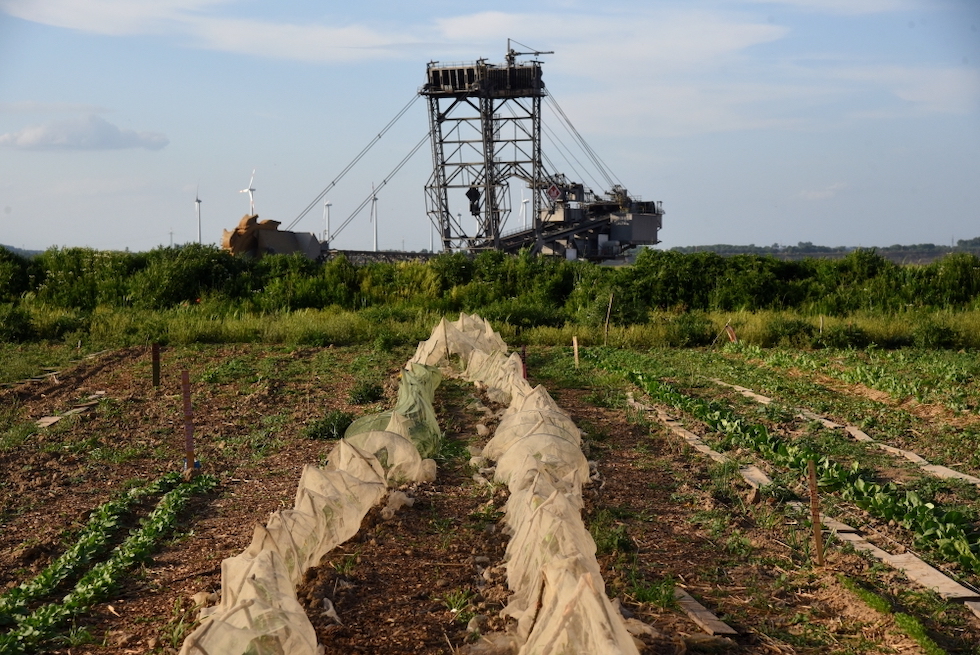
Some “Constructive Sabotage” happened: sabotage for life. One pump from the mine next to the field “broke”, and we let the water flow to water the plants. The pound that got created out of the broken pump is also one of the only opportunities for animals to get water. Some Hares are visiting, I always leave the animals that come to eat there because I know we have enough food anyways…
There is a lot of wind and air pollution because of the hole and the terrible monoculture fields all around influence and increase the wind, so the greenhouse was blown away and many things didn’t work but the soil is so incredibly fertile that it sorts of forgives you everything ! People in Lutzi are not specialized, we are all doing so many different tasks, most of us aren’t professional farmers so we improvise… We water the field by hand. All our material got donated, so it’s all second-hand and not working well. We used construction fences to grow tomatoes, I found it a really constructive way of using an object that usually closes things because now it opens the way for tomateos that climb on it!! We got an abundant production of tomatoes, they grew without a roof by hundreds and hundreds of kilos. We ate it every day. The beans didn’t work out though they stayed very small.
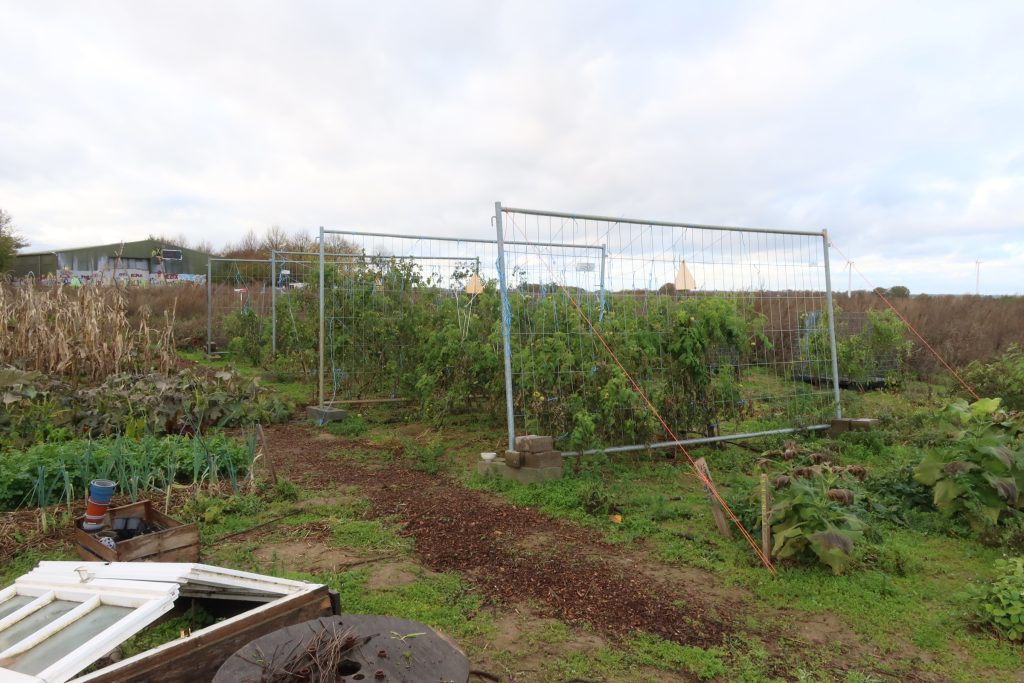
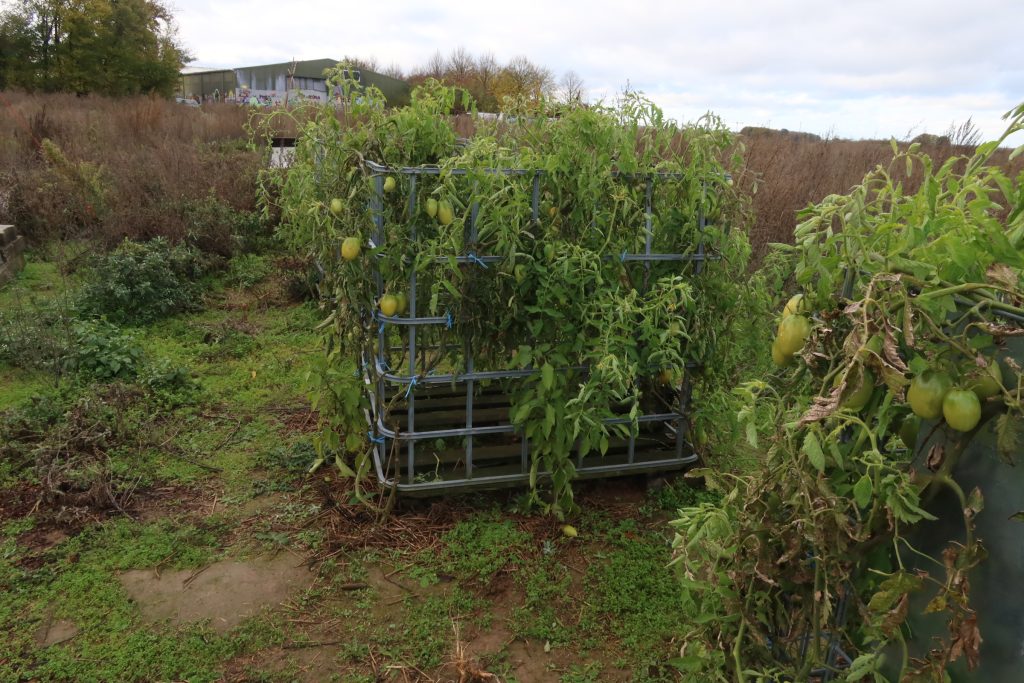
We got pumpkins, and lettuce growing, also blette, spinach, persley, aubergines, physalis, topinambour… You could plant garlic now, I’ll be motivated to do it but I respect seeds and plants, and if it’s for having them destroyed in two months… It would be spoiling precious seeds.
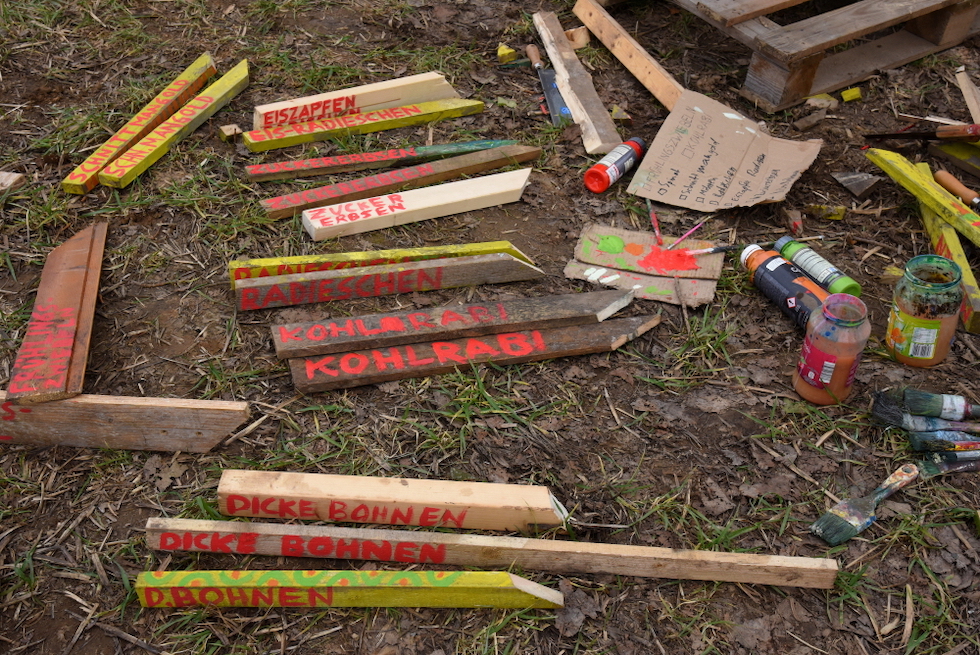
And we have a “compost capitalism » !
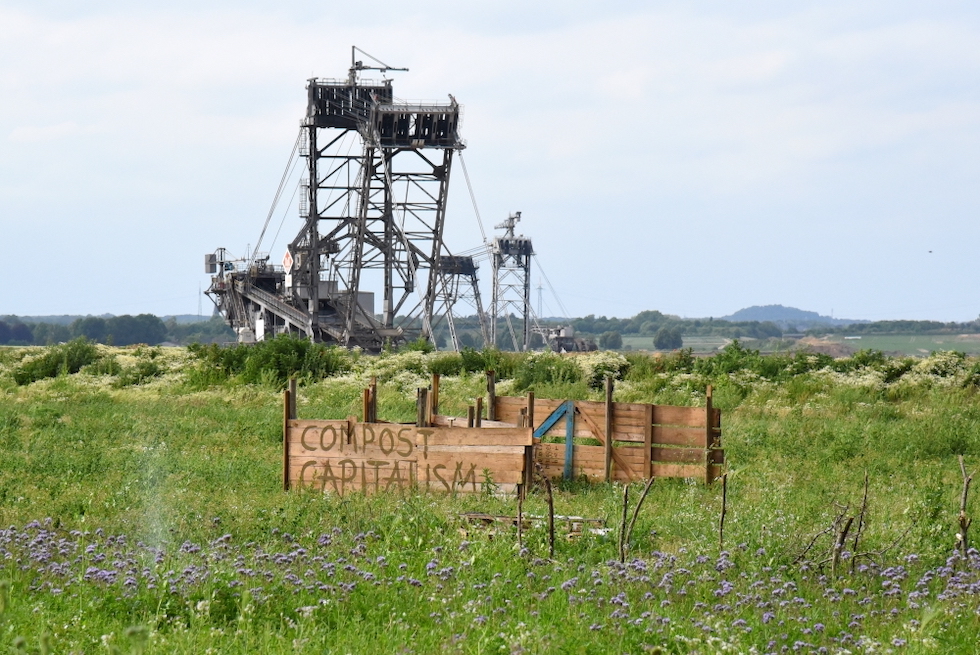
All the pictures are from Pictures from Heartbreak Country, KoLaWi 2022, by photographer Barbara Schnell.

